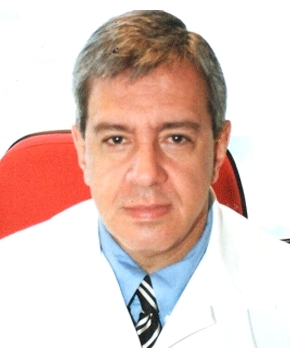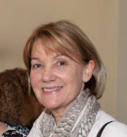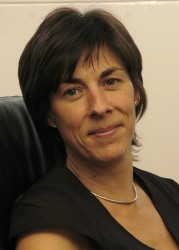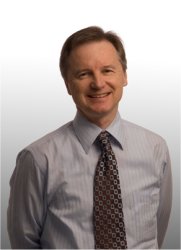Ricardo Teixeira
Ricardo Teixeira Fernandes, M.D.
Executive Director of the OncoHemato Clinic
Rio de Janeiro, Brazil
Dr. Ricardo Teixeira is the Executive Director of the OncoHemato Clinic in Rio de Janeiro (Brazil). He specialized in medical oncology and clinical hematology according to the guidelines of the Brazilian Medical Association. He graduated in medicine at the School of Medicine at the Fluminense Federal University in Niterói in the State of Rio de Janeiro and made his residency at the Lagoa hospital in Rio de Janeiro. He undertook a visitorship at the M.D. Anderson Cancer Center and John Hopkins Hospital in the USA. He is fellow of the Oncological Institute of the Gregorio Marañón Hospital of the Complutensis University and Master in Palliative Medicine (Madrid Autonoma University in Madrid, Spain). Dr Teixeira used to be chief of the Clinic of Medical Oncology and Clinical Hematology in the São Paulo Air Hospital and Chief at the Bonsucesso General Hospital in Rio de Janeiro.
Dr. Teixeira has published many articles on various subjects in clinical hematology and medical oncology in important international periodics. His last publication was the official publication of the Mexican Hematology Society about CML. He participated in the first clinical trial with Mitoxantrone in Brazil.
Dr. Texeira has recently undertaken a 4-weeks preceptorship at the Leukemia Department in M.D. Anderson Cancer Center (University of Texas). He will disseminate the preceptorship program of the iCMLf in Brazil in order to offer this training to young hematologists.
Susan Branford
 Susan Branford, PhD, FFSc (RCPA)
Susan Branford, PhD, FFSc (RCPA)
Head, Leukaemia Unit
Genetics and Molecular Pathology
SA Pathology, Centre for Cancer Biology
An Alliance between SA Patholgy and The University of South Australia
Professor Susan Branford is Head of the Leukaemia lab in the Department of Genetics and Molecular Pathology at SA Pathology.
Sue has expertise in molecular monitoring of the BCR-ABL1 gene for patients with chronic myeloid leukemia. As such she is a major contributor to International collaborative initiatives to establish guidelines and recommendations for producing reliable molecular data.
Dr Branford's research is focused on understanding the factors that predict response to tyrosine kinase inhibitor therapy and mechanisms of drug resistance.
Susanne Saußele
 Professor Susanne Saußele, MD
Professor Susanne Saußele, MD
Head, CML Excellence Center
III. Medizinische Klinik, Hematology and Oncology
University of Mannheim
Mannheim, Germany
Susanne Saußele studied medicine at the University of Heidelberg and specialized in Internal Medicine and Hematology/Oncology. She completed her thesis in the laboratory of Prof Dr Hehlmann and made her habilitation in Internal Medicine in 2013. In 2017, she was appointed as Professor of the University of Heidelberg. Currently, she is the leader of the CML Excellence Center in Mannheim including the molecular laboratory and the Study Centre of the German CML Study Group. She is acting as chief resident of the policlinic at the III. Med. Klinik, Medizinische Fakultät Mannheim, University of Heidelberg. Prof Saußele is also active as a project leader in EUTOS (European treatment and Outcome Study of CML) and in the E-MPN network (European network for MPN)and as active member in the ELN CML Working Party. Additionally she is member of the Scientific Program Committee of EHA.
Languages spoken: German, English
Tessa Holyoake

Professor Tessa Holyoake
- 1980-85 Medicine Glasgow University
- 1985-86 House jobs Stobhill and Victoria, Glasgow
- 1986-89 General medical training Inverclyde Hospital, Greenock
- 1989-92 Haematology, Western Infirmary, Glasgow
- 1992-96 PhD, Beatson Institute for Cancer Research, Glasgow
- Specialist Haematology Training, Glasgow Royal Infirmary
- 1996-98 LRF Senior Lecturer, Terry Fox Labs, Vancouver
- 1999-2001 Senior Lecturer, Academic Transfusion Medicine Unit, Glasgow Royal Infirmary
- 2001-2004 Reader, Section of Experimental Haematology, Glasgow Royal
- 2004-present Professor, Section of Experimental Haematology, Glasgow Royal
- 2008 Relocation of Section of Experimental Haematology to the Paul O'Gorman Leukaemia Research Centre and West of Scotland Cancer Centre, Gartnavel Hospital
Research Interests
My research focuses on the cancer stem cell. Cancer stem cells sustain cancers and leukaemias, are inherently resistant to many cancer therapies, including novel targeted agents and ultimately cause relapse in patients following therapy. We are most interested in the blood cancers, in particular chronic myeloid leukaemia. We have developed laboratory methods to purify the cells of interest from leukaemia patients and from normal donors, allowing side by side comparisons of leukaemic versus normal stem cells. These comparisons include global analyses of gene expression and protein expression. Any differences can then be fully investigated and exploited through drug discovery. Recently we have begun to explore high throughput drug screening against the purified cancer stem cells hoping to find drugs that rapidly kill the cancer stem cells but leave normal stem cells intact.
On the clinical side I run clinical trials of novel agents for patients with CML Scotland wide.
Timothy Hughes
 Professor Timothy P. Hughes, MD, FRACP, FRCPA
Professor Timothy P. Hughes, MD, FRACP, FRCPA
Timothy P. Hughes, MD, FRACP, FRCPA, is Head of the Department of Haematology at SA Pathology, RAH site, and Consultant Haematologist at the Royal Adelaide Hospital. He is also Clinical Professor of Medicine at the University of Adelaide and holds a Practitioner Fellowship from the National Health and Medical Research Council. His clinical interests include chronic leukaemias and myeloproliferative disorders. His current research interests focus are in molecular monitoring for leukaemias, clinical resistance to targeted therapies in leukaemia and the development of assays to predict response and resistance to targeted agents. He has published over 100 articles in peer-reviewed journals. He is a member of the Haematology Society of Australia and New Zealand, for which he served as President from 2001 to 2003, and the Australasian Leukaemia and Lymphoma Group, for which he served as a Director from 1999-2004 and as Vice-Chairman in 2003-4. In 2006 Professor Hughes was awarded the RACP Eric Susman Prize for the most outstanding contribution to the knowledge of any branch of internal medicine by a member of the College of Physicians.










